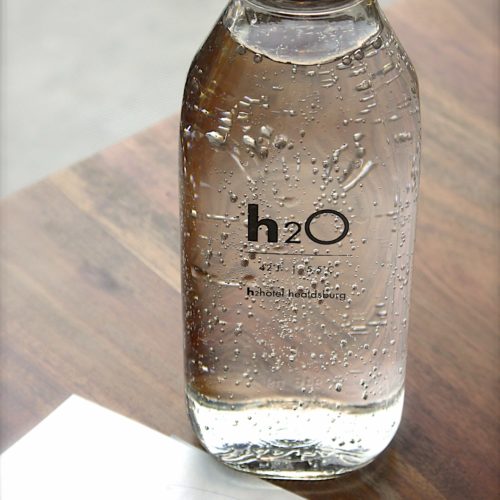
22 Nov Reasons Why You Get a Hangover
 All of us know of the agonizing symptoms of a hangover (a headache, nausea, trembling, fatigue, diarrhea, dehydration, etc), but surprisingly science has relatively little understanding of why certain people develop hangovers. Because alcohol is a diuretic many have asserted that dehydration was the main cause, as constant urination causes the body to lose water substantially. This occurs thanks to the suppression of vasopressin, the body’s natural antidiuretic hormone that stops us from urinating too often. Additionally, because you are spending the night taking shots of whiskey instead of drinking water you are dehydrating yourself by default.
All of us know of the agonizing symptoms of a hangover (a headache, nausea, trembling, fatigue, diarrhea, dehydration, etc), but surprisingly science has relatively little understanding of why certain people develop hangovers. Because alcohol is a diuretic many have asserted that dehydration was the main cause, as constant urination causes the body to lose water substantially. This occurs thanks to the suppression of vasopressin, the body’s natural antidiuretic hormone that stops us from urinating too often. Additionally, because you are spending the night taking shots of whiskey instead of drinking water you are dehydrating yourself by default.
Recent Discoveries in Hangover Science

However, dehydration is not the whole story. Scientists have discovered that electrolyte (minerals found in the bodily fluids) levels are not much different between those suffering from significant to moderate hangovers. Also, studies have found that there are no tangible links between hormones typically associated with severe dehydration and hangovers. These discoveries mean that dehydration is likely not the central cause of our hangovers, though it can cause a keen headache, the most common result of your body struggling to maintain hydration equilibrium.
As this happens our blood vessels narrow and thin, cutting off the flow of oxygen and blood to the brain, causing it to compensate through the dilation of blood vessels, which results in swelling. Even though your brain can’t feel the actual pain, the ache comes from pain receptors surrounding the brain being affected. But though we have linked headaches to dehydration, the stomach issues accompanying hangover have other origins. You see alcohol actively agitates the stomach lining and intestines, leading to inflammation and delaying the expulsion of our stomach contents. This condition causes gastric acid production to increase as well as raising the pancreatic and intestinal secretions in the gut, causing nausea and vomiting.
Acetaldehyde and Hangovers
Another candidate for the origin of a hangover is a toxic compound called acetaldehyde, which builds up as a byproduct of our body processing alcohol. It’s thought to be up to 30 times more toxic than alcohol itself and has been found to produce hangover-like symptoms in studies.
The Immune System
Another common hypothesis among hangover researchers sees the immune system as a culprit. According to a Korean study, those with hangovers have high levels of cytokines, which are commonly secreted by the immune cells, involving inflammation as well as cellular communication. In normal cases, cytokines help us fight off infections.
However, when injected in large enough doses into a healthy body it begins to exhibit symptoms associated with hangovers such as headaches, fatigue, and nausea. Also, there is evidence that abnormally heightened levels of cytokines disrupt the formation of memories in the brain, explaining why many people have a spotty recollection of the night before.
Hangover Effects on Different People
Developing a hangover can also have a lot to do with which alcohol a person drinks. This is because depending upon the way alcohol has been fermented it will develop a specific level of compounds known as congeners that are produced through the fermentation process, though they can be added after the fermentation process for flavor. According to studies beverages with high congener’s levels, like brandy or red wine, have a higher chance of giving people a hangover than drinks like vodka or gin with fewer congeners.


